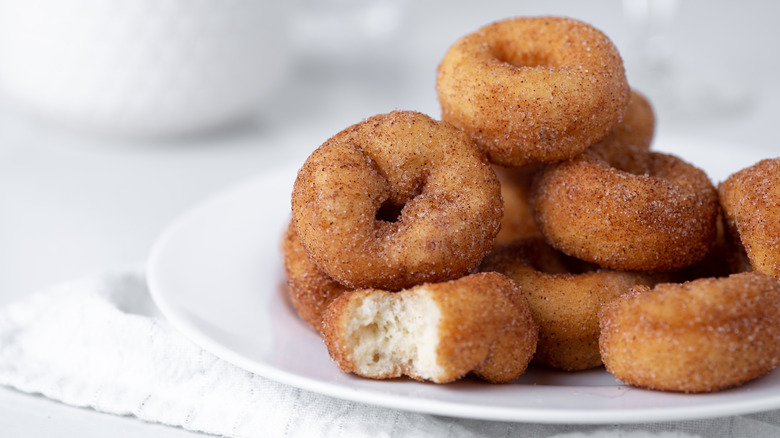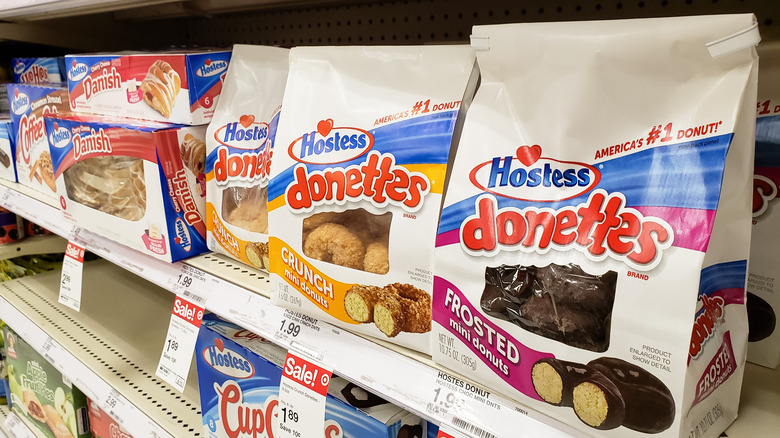How A Small Hostess Packaging Change Will Make A Big Impact
Since 1919, when the company still went by the name Continental Baking, Hostess has been a reliable source of sweet packaged treats. It started with Cupcakes, which were later followed by Twinkies, and soon after, Donettes. The brand has continued to grow and add more snack cakes over the years, but one thing hasn't changed much: How the Donettes are packaged. Though Donettes appear to have been originally sold in boxes, Hostess eventually switched over to bags sealed with tin-ties, and have remained that way ever since. But that's soon about to change, Food Business News reports.
Hostess recently decided to do away with the tin-ties altogether in an effort to reduce its impact on the environment. But fortunately for longtime Hostess fans, the new bags don't look or function all that differently. "Hostess Donettes bags are sealed in the same manner as they have been for years; We simply removed the tin-ties as we determined removing tin-ties did not affect product or packaging quality at the time of sale," a company spokesperson shared. "Small steps like these can add up, and we'll continue to look at everything we do through a sustainability lens."
The old Donettes packaging was too wasteful to maintain
While removing a simple tin-tie may seem like a minor change, Hostess's annual corporate responsibility report indicates otherwise. In 2021, the company did a serious evaluation of their packaging and discovered that the tin-ties from the Donettes bags were actually a major culprit of the company's carbon footprint. Just by eliminating the tin-ties, Hostess calculated it can save 215,000 lbs of steel, 151,000 lbs of plastic, and 700 lbs of glue. According to the report, this reduces climate change by an estimated 600,000 kg CO2-eq.
The redesigned Donettes bag isn't the only change Hostess plans to make on its packaging. In the corporate responsibility report, the company also pledged "to purchase more material made from recycled content; to develop alternative ways to package that reduces non recyclable materials and to reduce packaging needs without reducing the quality of our products." The company has already adapted 100% recyclable folding cartons and 100% recyclable cardboard, making around 80% of the product packaging sold to consumers recyclable. By 2023, Hostess plans to have its first fully sustainable facility up and running.

